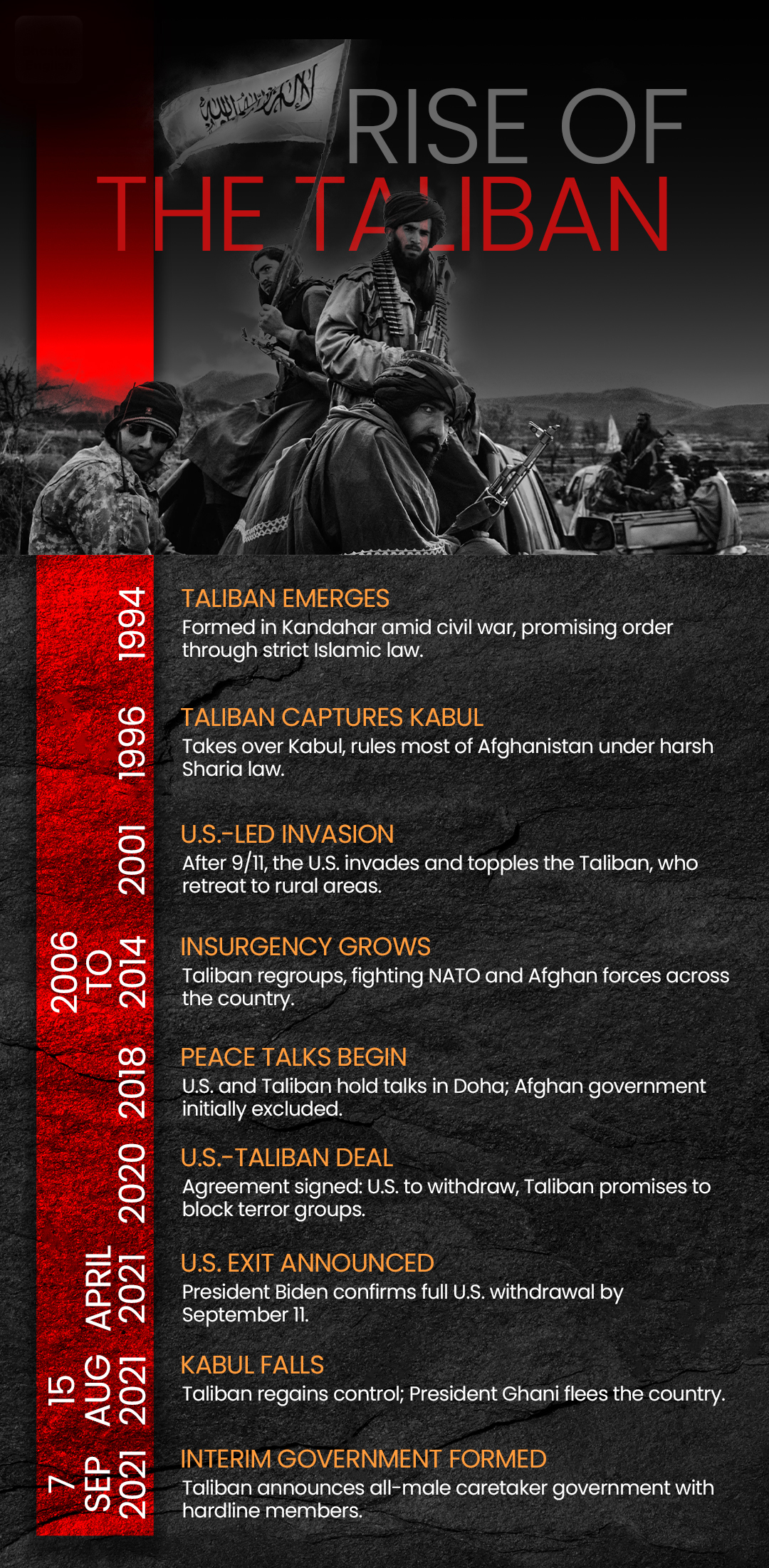Context:
Russia’s Ambassador to Kabul Dmitry Zhirnov recently conveyed to Taliban Acting Foreign Minister Mawlawi Amir Khan Muttaqi that Moscow had decided to formally recognise the Taliban as the legitimate government of Afghanistan. Soon after, the International Criminal Court (ICC), based in The Hague, issued arrest warrants for two senior Taliban figures on charges of gender-based persecution.
Historical Background
1. Strategic Rivalry over Afghanistan
- During the 19th century, Afghanistan was a buffer state in the "Great Game" between the British Empire and Tsarist Russia.
- In 1919, Afghanistan moved toward independence, repelling British influence after the Third Anglo-Afghan War.
- Lenin’s Soviet Union, post-1917, extended ideological and territorial overtures, supporting Afghanistan’s independence.
2. Soviet Engagement (1978–1989)
- A socialist government came to power in Afghanistan in 1978, aligned with the USSR.
- The 1979 Soviet invasion, justified under the Brezhnev Doctrine, triggered a decade‐long conflict.
- The war ended in 1989, leaving massive casualties: about 20,000 Soviet soldiers and 1.5 million Afghans.
3. Post-Soviet Russia’s Role
- In the wake of 9/11, Russia supported the global campaign against terrorism, partly to counter insurgent threats to its own territories.
- Despite tension with the Taliban during the 1990s, Moscow remained diplomatically engaged post-2021.
- Since 2017, a multi-party diplomatic forum—later known as the Moscow Format—has included key regional actors aiming to foster stability through dialogue.

Recent Developments:
1. Diplomatic Recognition
- The recognition followed Russia’s Supreme Court’s decision earlier in 2025 to remove the Taliban from its terrorist list.
- This formal acceptance allows the two countries to expand cooperation in sectors like trade, energy, and security.
2. Economic Cooperation
- In 2022, Russia signed preliminary deals to supply Afghanistan with fuel and wheat at discounted rates.
- Bilateral trade doubled in 2024, estimated at around USD 1 billion, with projections of USD 3 billion in 2025.
- Russia has opened doors for Afghan workers on its labour market and is exploring infrastructure and technology partnerships.
3. Legal and Ethical Implications
- The ICC’s arrest warrants highlight serious international concerns, especially regarding the treatment of women and minorities.
- This introduces a stark contrast between diplomatic recognition and international accountability efforts.
Regional and Global Reactions:
- China had previously deepened ties with Afghanistan by appointing its own ambassador in 2023.
- Other major regional actors—Pakistan, UAE, Turkey, and Azerbaijan—have also engaged diplomatically.
- India, though not formally recognised by Afghanistan, continues developmental support and maintains its technical presence, notably in education, infrastructure, and health sectors.
Implications for India and Beyond:
1. Diplomatic Balance: India must now evaluate whether increased engagement with the Taliban regime is prudent—balancing geopolitical interests with values such as human rights and regional stability.
2. Strategic Connectivity: Afghanistan remains central to India’s “Connect Central Asia” initiative. Recognition by Russia and others may open new avenues for trade, transit, and regional connectivity.
3. Humanitarian Outreach: Expanding educational and medical visa offerings could reinforce India’s long-term goodwill and share development gains with Afghan youth and women.
Conclusion
Russia’s recognition of the Taliban government marks a turning point in Afghanistan’s diplomatic reintegration, presenting both opportunities—such as economic cooperation and regional connectivity—and challenges, notably aligning diplomatic engagement with global norms and human rights obligations. For key regional players, including India, the task is finding a strategic equilibrium that secures national interests while supporting stability and humanitarian progress in Afghanistan.






